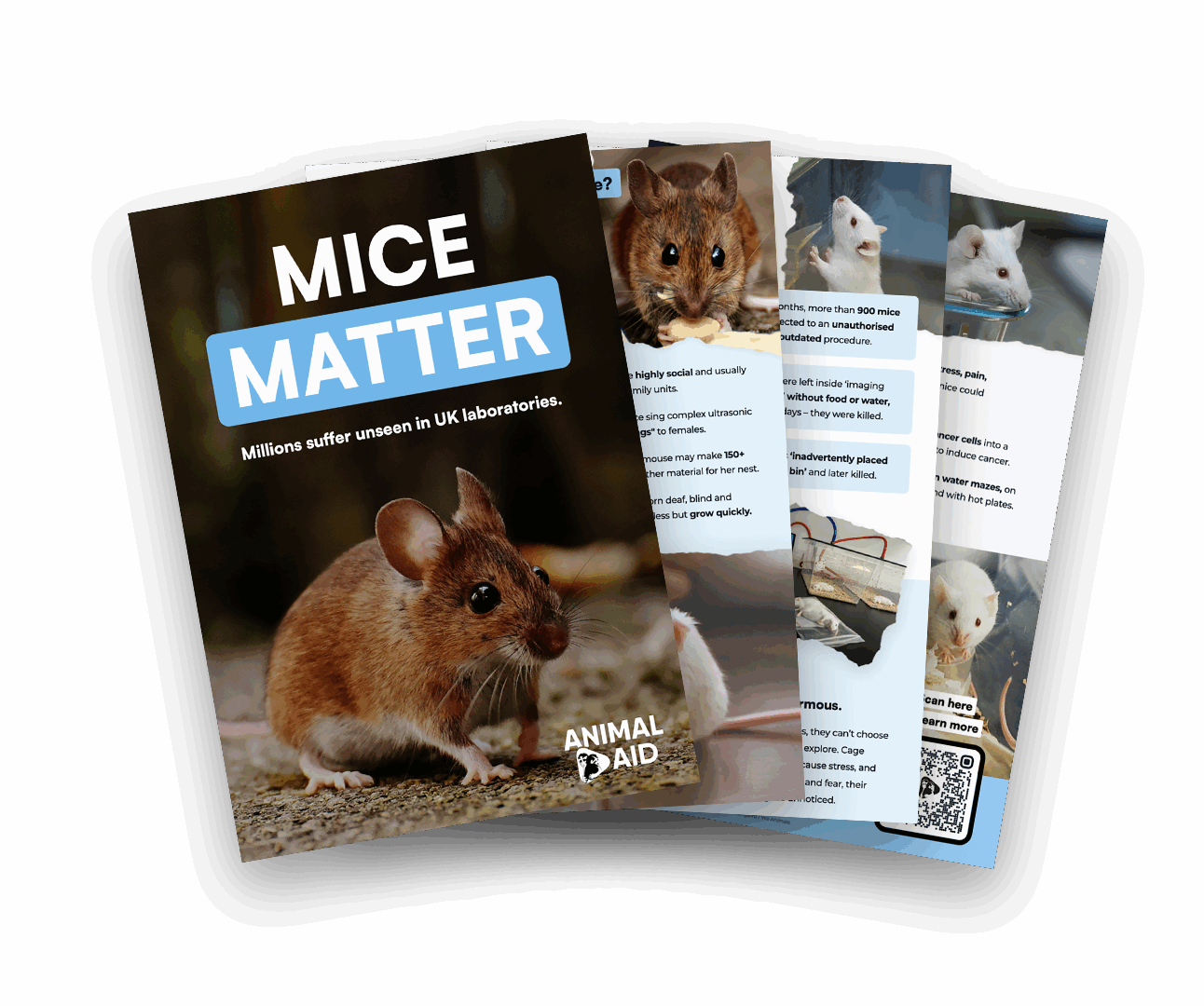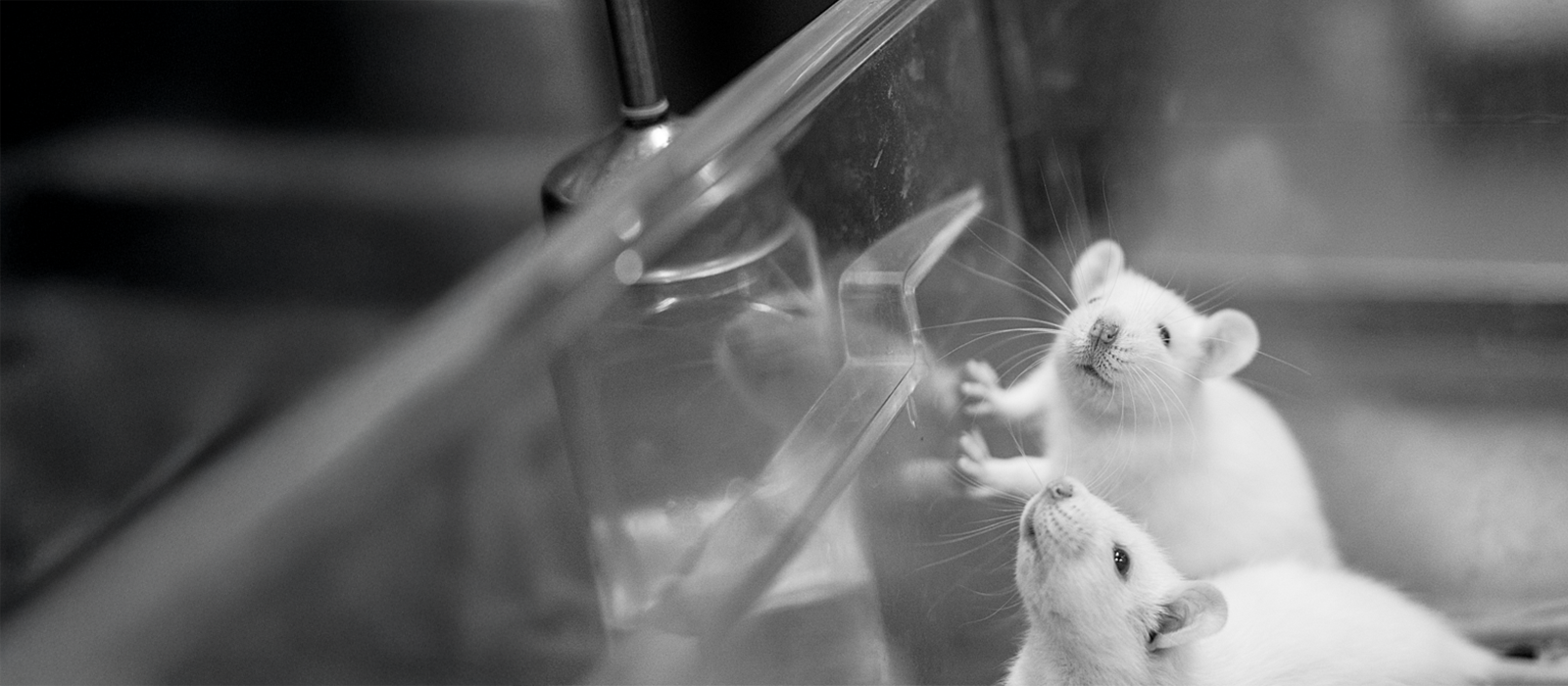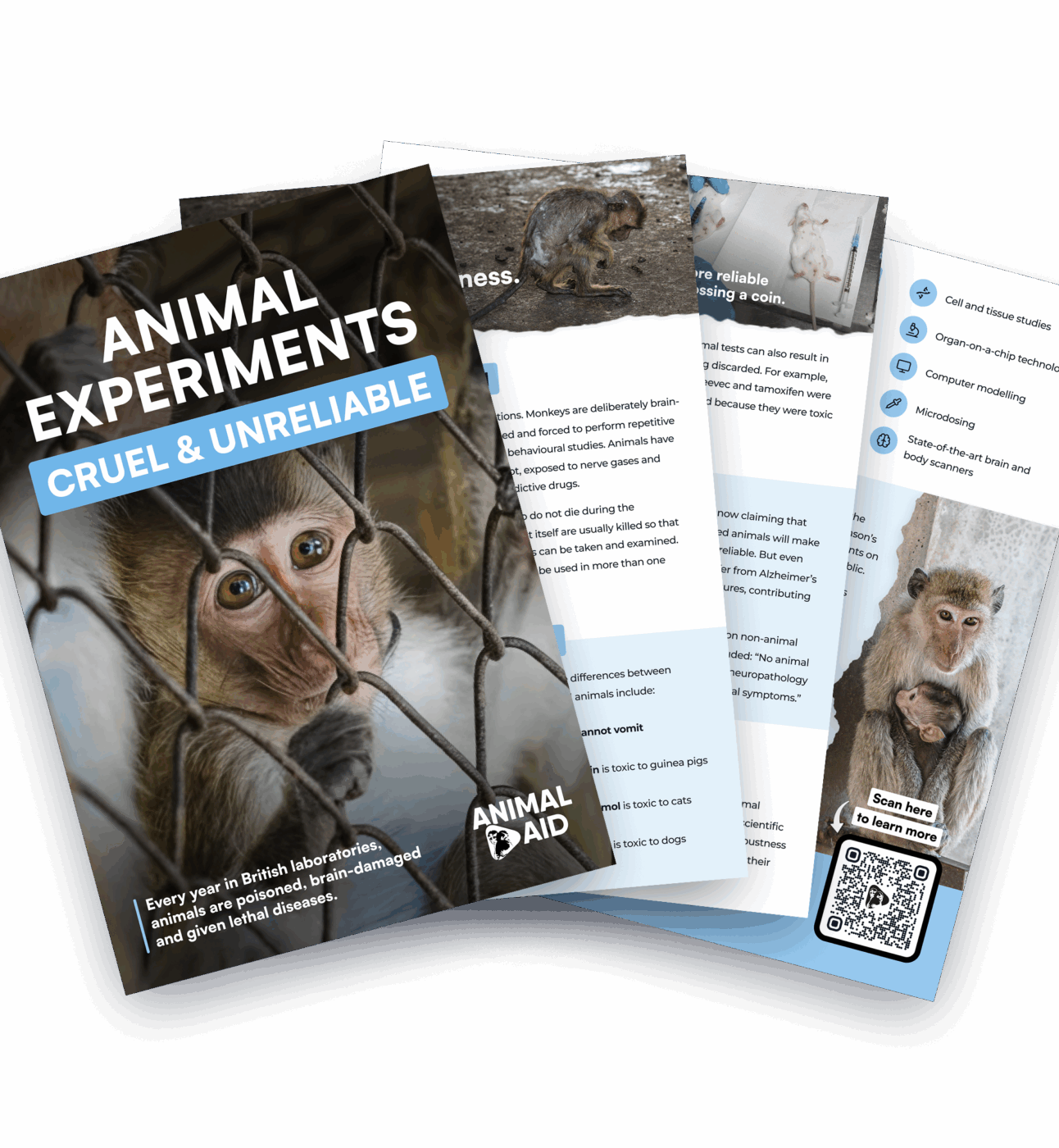
Mice are often forgotten in the campaign to end experiments on animals. Our Mice Matter campaign seeks to change that.

Mice are often forgotten in the campaign against experiments on animals. Our Mice Matter campaign seeks to change that.
Mice might be small and often misunderstood, even feared, but they deserve the same consideration as other animals – especially as millions of them suffer in British laboratories every year.
The aim of our Mice Matter campaign is to raise the profile of these sensitive but charming animals and challenge their use in scientific experiments.
Animal rights tells us that all animals should be treated with respect and compassion, even if they are small, even if they are unpopular, even if they are unfamiliar. Many people are surprised to learn how intelligent mice are and that they experience pain in a similar way to humans.
In the wild, mice may eat as many as 200 small meals each night. They use their incredible sense of smell to find food and sniff out predators, and they are highly sociable, with male mice even ‘singing’ to females. In preparation for her babies, a female mouse may make more than 150 trips to gather material for her nest – now that’s dedication!
In British laboratories each year, millions of these fascinating animals are bred, harmed and killed in the name of science.
A life in captivity can never replicate the complexity of life for a mouse in the wild. No matter how ‘enriched’ a laboratory cage is, animals are denied the freedom to burrow, explore and escape unpleasant experiences. There is evidence that animals in laboratories, including mice, suffer because of their day-to-day living conditions – even moving and cleaning cages causes stress.
Mice are often kept in small containers, stacked on racks, sometimes in rooms with thousands of other animals; the scope for suffering is truly enormous. Here are a few of the incidents reported in British laboratories in 2023:
The range of conditions and diseases induced and inflicted upon mice could fill endless pages. Some of the most infamous include:
You may have also heard of water mazes and hot plates:

Using animals in science is cruel and outdated, but it is also futile as experiments on animals do not reliably predict outcomes in humans. Ask your MP to support Better Science.

Mice are often forgotten in the campaign to end experiments on animals. Our Mice Matter campaign seeks to change that.

A great introductory leaflet that covers the general issues with using animals in science.